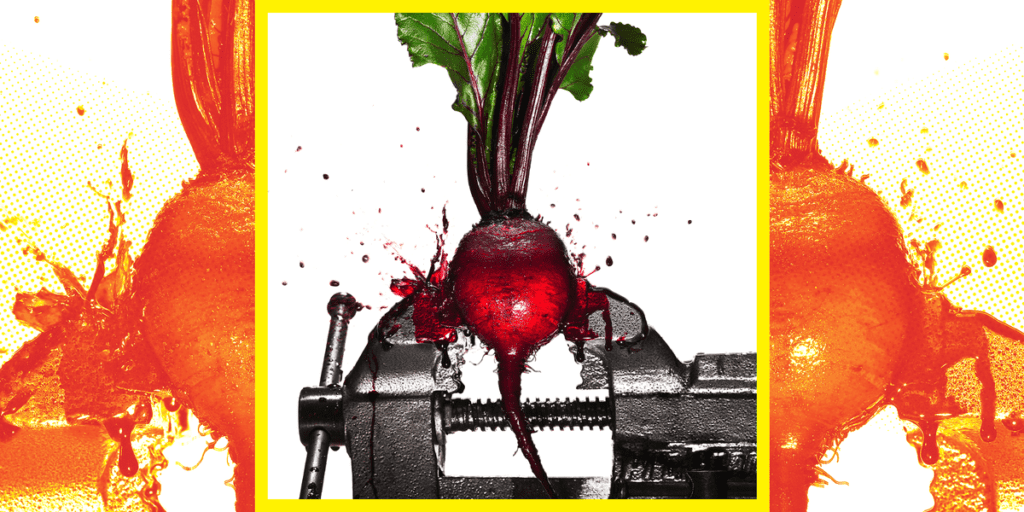Understanding Beetroot Powder: Benefits and Considerations
Beetroot powder has gained popularity among supplement enthusiasts, often marketed for its potential benefits in boosting energy, enhancing athletic performance, and promoting heart health. Contains concentrated nutrients derived from beets, this powder is frequently included in various supplements, including pre-workout formulations and heart health chews.
One of the key claims made by supplement manufacturers is that beetroot powder helps to increase nitric oxide levels in the blood. This molecule plays a crucial role in expanding blood vessels, which can improve circulation and potentially lower blood pressure. However, to fully understand the implications of these claims, it’s essential to delve deeper into the nutritional profile of beetroot and the science backing its purported benefits.
What Is Beetroot Powder?
In essence, beetroot powder is a dehydrated form of the root vegetable known as beet. It retains many of the beneficial compounds found in fresh beets, such as betalains and nitrates. According to Dr. Kirsten Brandt from Newcastle University, betalains are responsible for beets’ vibrant purple color and are known for their heart health-promoting properties. Nitrates in beets convert to nitric oxide in the body, facilitating better blood circulation and reducing inflammation.
Interestingly, when processed into powder form, these beneficial compounds generally remain intact. Research indicates that both beet juice and powder can retain their health benefits, with variations depending on the beet variety and processing method. In many cases, beetroot powder originates from freeze-dried beet juice, which helps maintain its nutritional integrity.
Health Benefits of Beetroot Powder
When consumed, beetroot powder may offer several health advantages. Some of the notable benefits include:
Blood Pressure Regulation
A review published in Frontiers in Nutrition highlighted that individuals who consumed beetroot juice daily experienced a modest reduction in systolic blood pressure compared to control groups. The relaxation effect on blood vessels, attributed to nitric oxide, is believed to play a key role in this benefit.
Enhanced Athletic Performance
Research in the Journal of the International Society of Sports and Nutrition suggests that beetroot juice may enhance endurance and improve performance during intense exercise. Nitric oxide’s role in preserving phosphocreatine, a vital energy source for muscle contraction, is an essential factor that contributes to enhanced physical performance.
Support for Muscle Recovery
Another study reported in Sports Health found that beetroot supplementation could potentially expedite recovery from post-exercise muscle soreness. This might be due to the anti-inflammatory properties of nitric oxide, which aids in muscle repair and regeneration.
Cognitive Function Improvement
Research published in the European Journal of Nutrition indicated that individuals taking chewable beetroot supplements performed better in short-term memory tests than those taking a placebo. This observed improvement may be linked to increased cerebral blood flow facilitated by nitric oxide, enhancing cognitive capabilities.
Considerations Before Taking Beetroot Supplements
Though the benefits of beetroot powder are promising, it’s crucial to approach its claims with caution. Many studies have small sample sizes, making it difficult to generalize results to the wider population. As Dr. Brandt mentions, there’s a lack of large, long-term studies that can conclusively validate these benefits over time.
For the best results, consuming whole beets is recommended. Whole beets not only provide the beneficial compounds found in the powder form but also include dietary fiber, which may aid in digestion. However, if you find it inconvenient to prepare fresh beets, beetroot powder can serve as a practical alternative; just be mindful of ensuring you’re also getting enough fiber from other dietary sources.
Choosing the Right Beetroot Supplement
When selecting a beetroot supplement, it’s advisable to opt for loose powder or chewable formats over capsules. The conversion of nitrate to nitric oxide starts in the mouth, and capsules may impede this process. Additionally, avoid using antibacterial mouthwash before taking beetroot supplements, as it can hinder the conversion efficiency of nitrate to nitric oxide.
Who Should Avoid Beetroot Supplements?
Individuals with low blood pressure or those at high risk for kidney stones due to the high oxalate content in beetroot should avoid these supplements. If you are under medication for high blood pressure, consult with a healthcare professional before adding beetroot supplements to your routine, as they may necessitate a medication adjustment.
